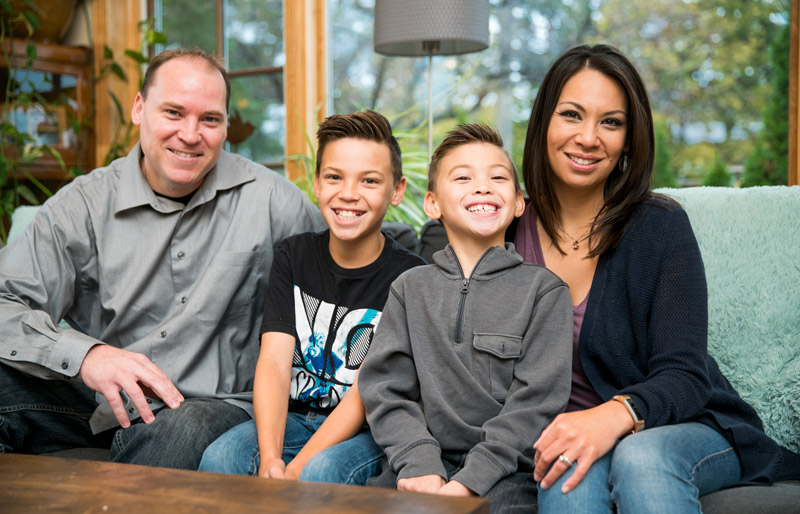Few people realize the challenges of being a parent, until they become one. Now, imagine the added challenges of parenting an autistic child which is becoming more common as the number of children diagnosed with an autism spectrum disorder (ASD) increases. According to the Centers for Disease Control and Prevention, in the United States, the prevalence rates of autism spectrum disorder increased from 1 in 150 children in 2000 to about 1 in 68 in 2012 (Centers for Disease Control and Prevention [CDC], 2012). A more recent study by the Centers for Disease Control and Prevention (CDC; 2020) suggested that in some areas of the country, the prevalence of ASD was closer to 1 in 54 children.

A crucial time to support parents is after a diagnosis when parents are overwhelmed by and focusing on the challenge of “what do I do?” Many parents search online for the best therapies or ask others about best parenting practices. I am here to say that autistic children do not need a perfect parent, they need a positive and accepting one.
The aim of this article is to give parents a glimmer of hope, emphasizing 11 compassionate parenting strategies and focusing on the joyful moments during a crucial time when parents are focusing on the challenge of “my child is autistic, what do I do?”
- Allow the feelings and emotions – Parents, after receiving an autism diagnosis, experience a plethora of emotions before they accept their child’s diagnosis. Many parents move through emotions like Kubler-Ross’ (1980) stages of grief; grieving for what might have been followed by a plan of action. Having an autistic child may not fit your perspective of what your family should look like, it may feel like you have a square peg to fit into your family circle. You will mourn and that is okay. Give yourself the time and space.
- Realize you are good enough – My opinion, all parents of autistic children should receive a merit badge in parenting. Raising an autistic child is like learning a foreign language – but in parenting. It is challenging and sometimes overwhelming. Parents utilize numerous resources to help their child developmentally, but they still worry they are not doing a good enough job. Your child does not need the perfect parent, they need a happy and supportive one. Raising an autistic child is difficult, but it is empowering and will make you a better person.
- Build your support village – When you begin learning about autism, there are moments when you will feel lonely and lost. You will learn more from your “support friends and family” than an autism expert. Simply talking to and listening to others who are raising autistic children can be life changing. They get it! It is so comforting to talk with others who get it and support you, especially during times when you feel overwhelmed or isolated. You are not alone in this journey.
- Your child’s differences are what make them unique – Even though your child interprets the world differently, that’s not a bad thing. This is the beginning of an eye-opening journey. Their perspective of the world is amazing; they will show you there are different ways or even better ways to solve problems. Yes, they may have challenges due to their neurodiversity, but they can cope with these challenges with proper support.
- Autism is your child, but it does not define your child – Your child is not defined by a single diagnosis, they are special in their own way and different in their own way. You will experience parenting challenges but learn to find the joy. Flip your attitude, celebrate the small things and don’t give up hope. Overcoming the challenges and finding that joy is so freeing.
- Meet your child where they are developmentally – Most developmental milestones are based on normal developing children. Don’t perseverate on age limits and assume that your child will not meet developmental milestones just because they are older. Meet your child where they are developmentally; they will develop on their own timeline. It does not mean they are any better or less than other children; they just got there a little slower. Celebrate the achievements, and don’t give up on them.
- Focusing on the present and unconditional acceptance – Focusing on the present and unconditional acceptance are vital ingredients for raising a happy child. Perseverating about the future – school, grades, graduation, or future jobs – drains your energy for today. Each day, view your child through a compassionate lens, believing they can achieve anything they put their mind to. Our autistic children can surprise us, developing in ways that seemed impossible when they were younger.
- The environment is loud and overwhelming – Learn about sensory overload. Approximately 80% of autistics exhibit sensory processing issues (Case-Smith, Weaver, & Fristad, 2015). Sensory sensitivity – sounds, sights, tastes, texture are perceived as aversive – is extremely common among autistics and a leading cause to many challenging behaviors (e.g., Cermak, Curtin, & Bandini, 2010; Hillman, 2021).
- Your belief in your child’s ability influences their achievement – If you believe your child is highly capable and intelligent, you will demonstrate that belief through your words and actions. Your child will clearly hear the message, and they will more than likely rise to the expectation. Alternatively, if you focus on the challenging behaviors, believing your child is not capable, unmotivated, or helpless, then your child will hear that message and will perceive themselves as one big flaw. It’s a self-fulfilling prophecy.
- Focus on the positive – Theodore Roosevelt said, “Comparison is the thief of joy.” Every person – you and I included – is a combination of positive traits and plenty of flaws. Choose to see your child’s positive traits rather than focusing on their challenges. When you visit the doctor or therapist, rather than detailing the challenging behaviors and deficits, focus on their strengths. When we trot out an itemized list of our children’s flaws, we are comparing our autistic child to others, and destroying our children’s self-esteem. Identify your child’s strengths then decide how to modify their challenging behaviors using their strengths.
- Keep pushing the boundaries – Push your child out of their comfort zone, just a little; don’t make it easy for them. Rather than visiting the same park or taking the same route home from school because it is more comfortable for your child, play at different parks or alter your route home by just a few blocks. You are broadening your child’s horizons, but also you are setting higher expectations.
You will experience challenging “tantrum-in-the grocery store” moments, you will worry about the future, you will become a tireless advocate for your child. I encourage you to take one moment at a time, one step at a time, one day at a time. Each day, find joy through the unique strengths of yourself and your child. Recognizing the joyful experiences helps you have a balanced perspective. Raising an autistic child is both challenging and joyful. Joy is defined in simple measures – a day at the park, an afternoon of Pokémon, a hug, your child talking about their interests, trying a novel food, or your child’s first successful play date. I will be the first to say it is hard work raising an autistic child. I encourage you to not change the way your child views the world; embrace their neurodiversity. In learning to find the joy, you are accepting your child as autistic, leveraging their strengths and interests to help them live a fulfilling life; raising your autistic child in a way that allows them to thrive.
For more information, Heidi Hillman can be reached at hhillman@ewu.edu.
References
Case-Smith, J., Weaver, L. L., & Fristad, M. A. (2015). A systematic review of sensory processing interventions for children with autism spectrum disorders. Autism: The International Journal of Research and Practice, 19(2), 133–148. https://doi.org/10.1177/1362361313517762
Centers for Disease Control and Prevention (2020). Autism spectrum disorders (ASDs): Data & statistics. Retrieved from https://www.cdc.gov/ncbddd/autism/data.html
Centers for Disease Control and Prevention (2012). Autism spectrum disorders (ASDs): What should you know? Retrieved from http://www.cdc.gov/ncbddd/autism/index.html
Cermak, S. A., Curtin, C., & Bandini, L. G. (2010). Food selectivity and sensory sensitivity in children with autism spectrum disorder. Journal of the American Dietetic Association, 110 (2), 238-246. https://doi.org/10.1016/j.jada.2009.10.032
Hassall, R., Rose, J., & McDonald, J. (2005). Parenting stress in mothers of children with an intellectual disability: the effects of parental cognitions in relation to child characteristics and family support. Journal of Intellectual Disability Research, 49 (Pt 6), 405–418. https://doi.org/10.1111/j.1365-2788.2005.00673.x
Hillman, H. (2021). Designing environments to reduce challenging behaviors. Autism Spectrum News, 14 (2), 1. https://autismspectrumnews.org/designing-environments-to-reduce-challenging-behaviors/
Kubler-Ross, E. (1980). Death the final stage of growth. New York: Simon and Schuster.





